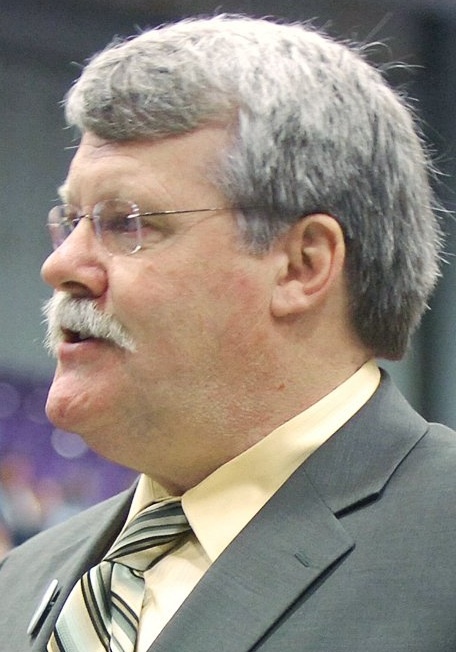Over the past three years, the Legislature approved three major pieces of legislation dealing with health care funding, gay marriage and tax restructuring.
In each case, Maine residents targeted the laws with people’s vetoes and repealed them at the polls.
In 2008, a beverage tax aimed at funding the Dirigo health insurance program was repealed.
In 2009, a law allowing same-sex couples to marry was overturned.
And just last week, a comprehensive restructuring of Maine’s tax laws that would have lowered the income tax while broadening the sales tax was rejected by voters.
Political observers and activists suggest the veto drives may reflect a distrust of Augusta among the electorate. Some say the drives are a message from the people to their Legislature.
“It’s not a tsunami message, not a message from a majority, per se,” said Michael Franz, a professor of government at Bowdoin College. “I think the message is coming from an active group of concerned citizens who are able to get these things on the ballot and make them a (major) issue.”
The repeals of the two laws related to taxes differ from the repeal of the gay marriage law. The first two related to the economy and fiscal policies, while the third is a social issue with significant religious overtones.
One thing the three laws have in common: They were passed largely by Democrats, who control the Senate, House and governor’s office, and were opposed by Republicans, the minority party.
“To me, unilateral decisions — decisions made in Augusta by one party alone — are very vulnerable to the veto,” said Christopher Hall, a lobbyist with the Portland Regional Chamber. “When you see bipartisan results coming out of Augusta, generally they don’t have as much of a risk of a veto succeeding.”
Sen. David Trahan, R-Waldoboro, led the latest people’s veto. He saw a very clear message in the recent successes.
“If folks in the majority who keep passing these things want to stop seeing citizen vetoes, maybe they should start representing the majority of Maine people,” he said.
Hall noted that the Legislature has passed sweeping utility legislation and challenging budgets recently, with strong bipartisan support, and no veto attempts were made on those laws.
That’s because the bipartisan bills tend to reflect a balanced approach that everyday people can accept, said Rep. Josh Tardy, R-Newport, the House minority leader.
Said Hall: “This has nothing to do with who’s in charge and who’s not in charge. People are not comfortable with partisan (legislation). If the Republicans held majorities and Democrats were in the minority, it’d be the opposite, but the same.”
Senate Majority Leader Philip Bartlett, D-Gorham, said by and large the parties have worked together. And while he and other legislators said the right to the veto was sacrosanct, Bartlett also noted potential problems with it.
“At times there’s a feeling that there are folks who may have interest in legislation who don’t come to the table to compromise — they feel they have the veto as a backstop,” he said.
“That is concerning. We’re all better off if people bring their best ideas to the table for discussion, to try to work out good compromises.”
Sen. Dennis Damon, D-Trenton, was the sponsor of the gay marriage bill. The veto of that law, and of others recently, reflects an electorate uncomfortable with change, he said.
“I think what it’s saying is, our collective knees still jerk. When there is anything that is substantially different from the status quo, and thus it means change, there is a very quick reaction to it,” said Damon.
“There isn’t any sense of giving it an opportunity to work, or trying to understand it more than the visceral (reaction) or the sound bites for or against it.”
He suggested the laws governing the veto could be changed, so that new measures couldn’t be overturned immediately. Rather, they would have to be given a chance to work, then after a period, a veto attempt could be made.
“To just simply have what is oftentimes a partisan reaction to an earlier partisan action, I think that just causes confusion, and I don’t think it’s in the best interest of the entire state to move forward,” said Damon.
The three vetoes in three years aren’t exactly a trend, noted Betsy Smith, executive director of Equality Maine and one of the organizers of the gay marriage legislative effort.
The tax vetoes reflected economic times, the recession and the nationwide discontent of voters, Smith said.
“Marriage is a completely different issue. It is about culture, it is about values, it has nothing to do with how do we want our money as citizens to be spent,” she said.
Smith said she didn’t believe it would have mattered if the marriage equality legislation had received more support from Republicans.
“Our perennial opponents will always try to repeal the protections we pass in the Legislature,” she said. “(Bipartisan support) doesn’t matter. We had bipartisan support for the nondiscrimination law, and they still collected signatures and got a people’s veto (on the ballot).”
Smith said supporters and organizers of same-sex marriage see the veto as a sign that Maine voters need more information about why gay and lesbian couples need the protection of “marriage,” and will keep working on the issue.
Bowdoin’s Franz pointed to an inconsistency in the behavior of Maine voters, who repeal laws yet routinely re-elect the legislators who passed them to begin with.
State records show that of the 107 incumbents running for the House in 2008, 99 were re-elected. In the current Senate, 25 of the 35 senators holding seats are incumbents. Six incumbents had been blocked from running by term limits.
“The same people approving people’s vetoes end up voting for the same incumbents that passed those laws,” said Franz. “If you don’t like what your elected representatives do, you vote them out.”
Scott Fish worked on the campaign to veto same-sex marriage and is owner of the right-of-center website and discussion forum, As Maine Goes. He contends that people’s vetoes reflect a lack of public attention to legislative races.
“Nobody would go see a piano concert where the pianist is a guy who’s never played the piano before, yet we elect people who don’t have a clue to the running of government,” said Fish.
“We citizens need to get smarter ourselves, we need to learn how government works, we need to elect people who know something about governing, lawmaking, to go and serve.
“And then we will change,” he said. “I don’t think we’ll see the need for as many citizens referendums.”
Staff Writer Matt Wickenheiser can be contacted at 791-6316 or at:
mwickenheiser@pressherald.com
Send questions/comments to the editors.



